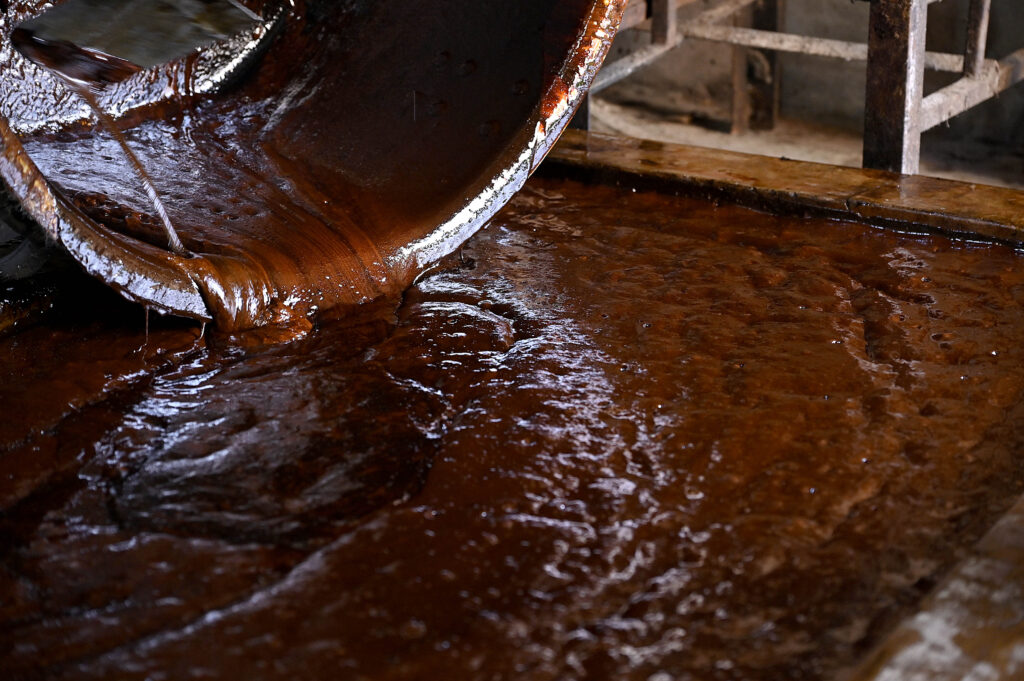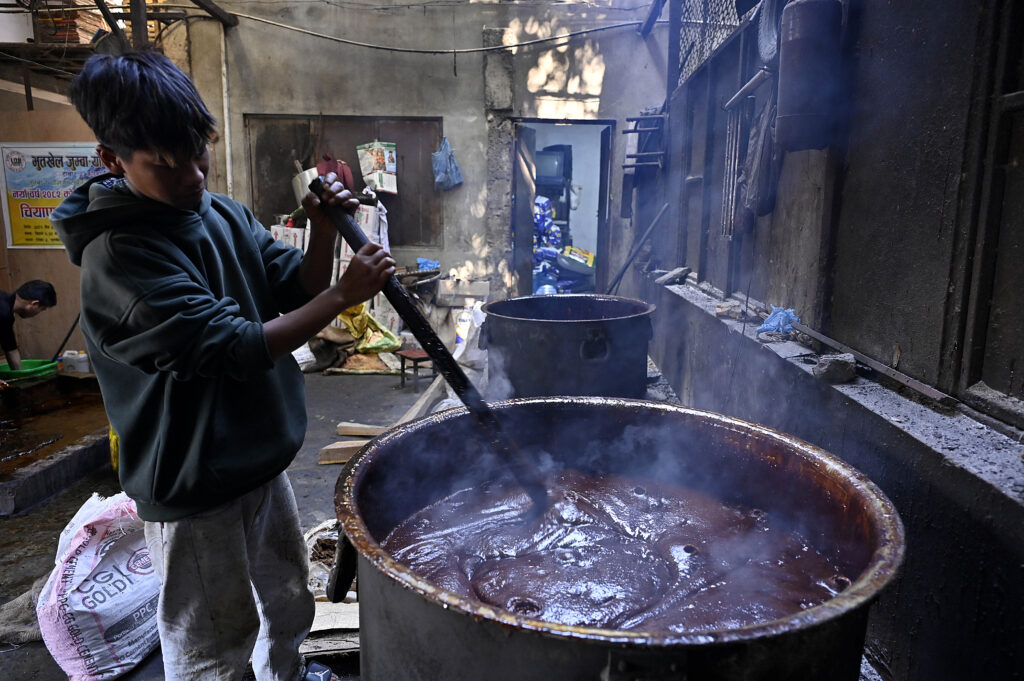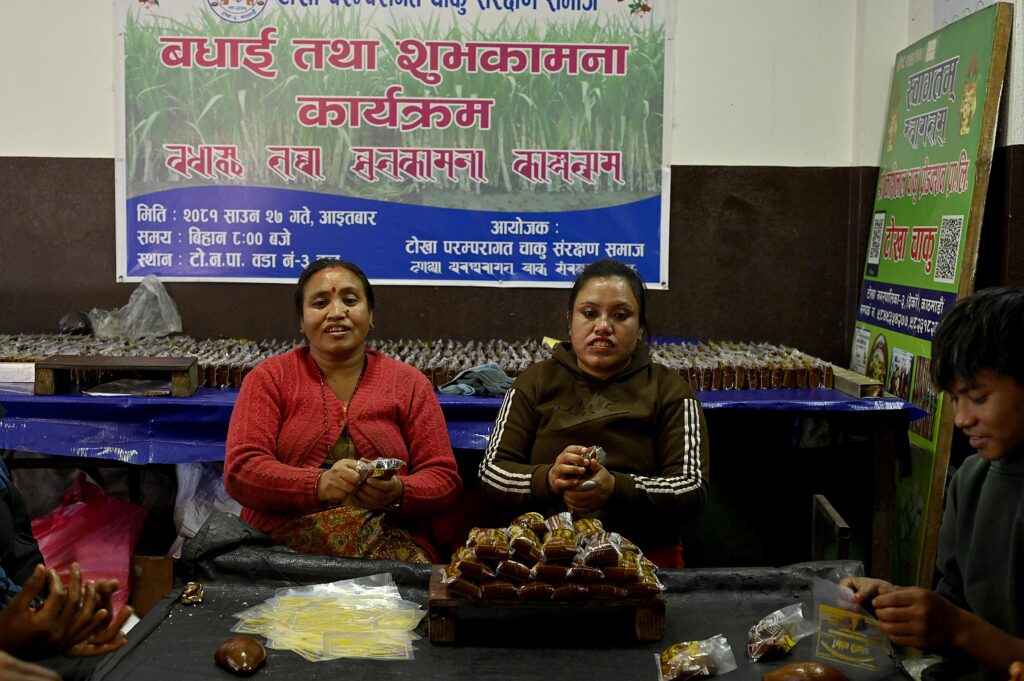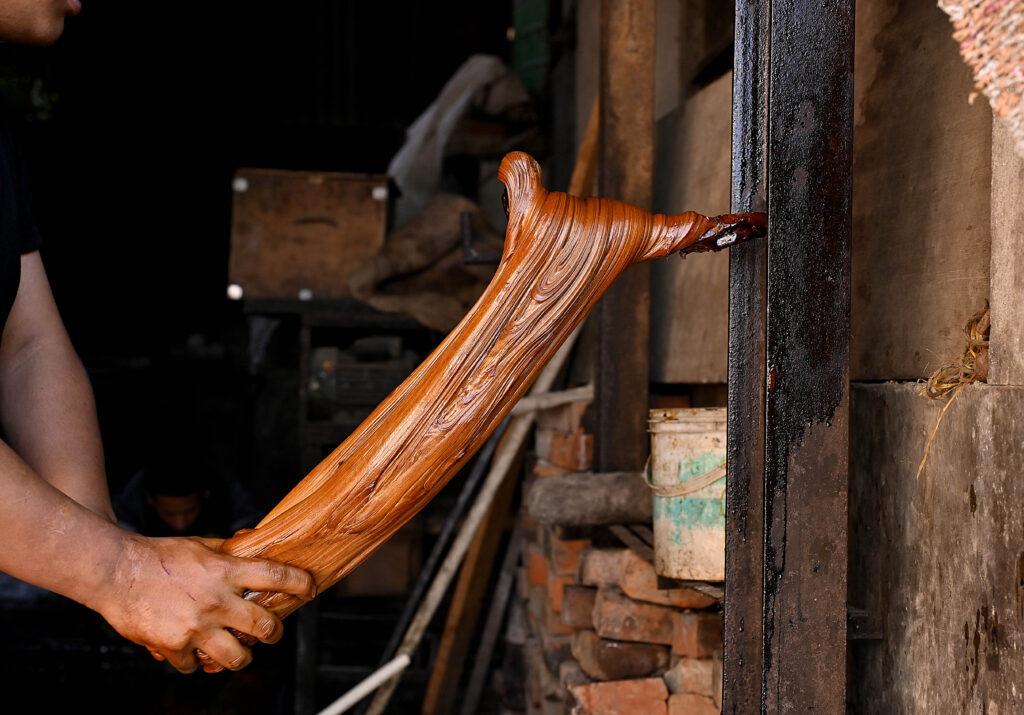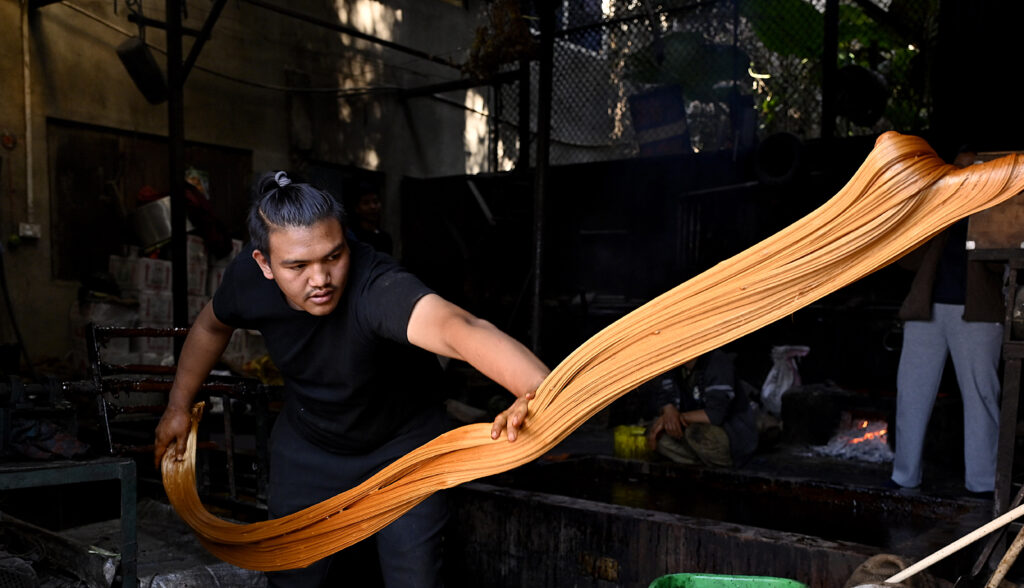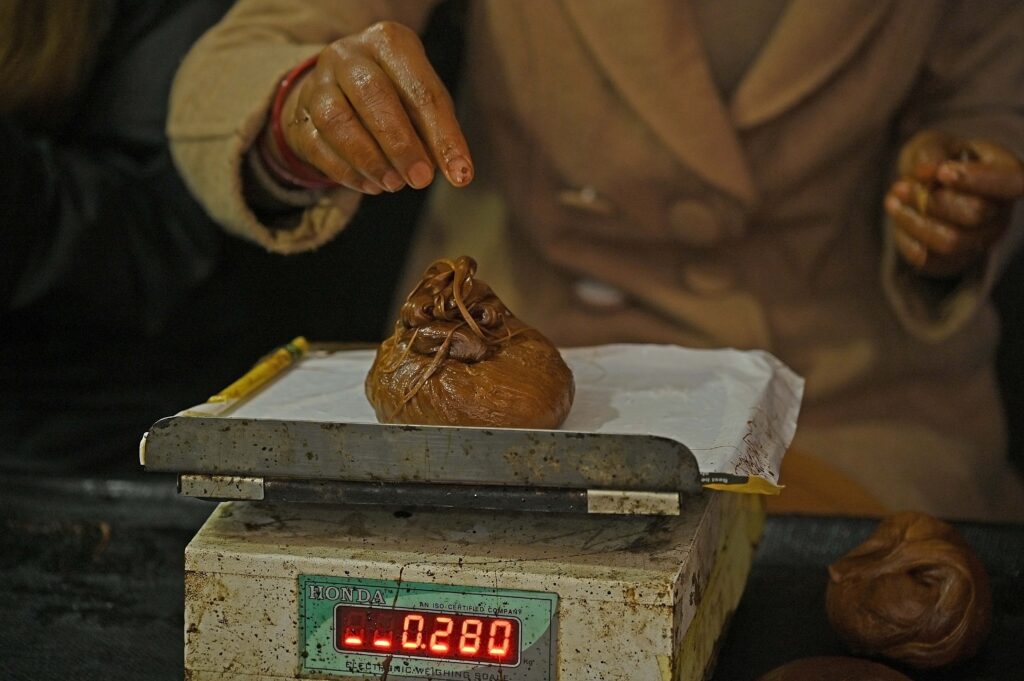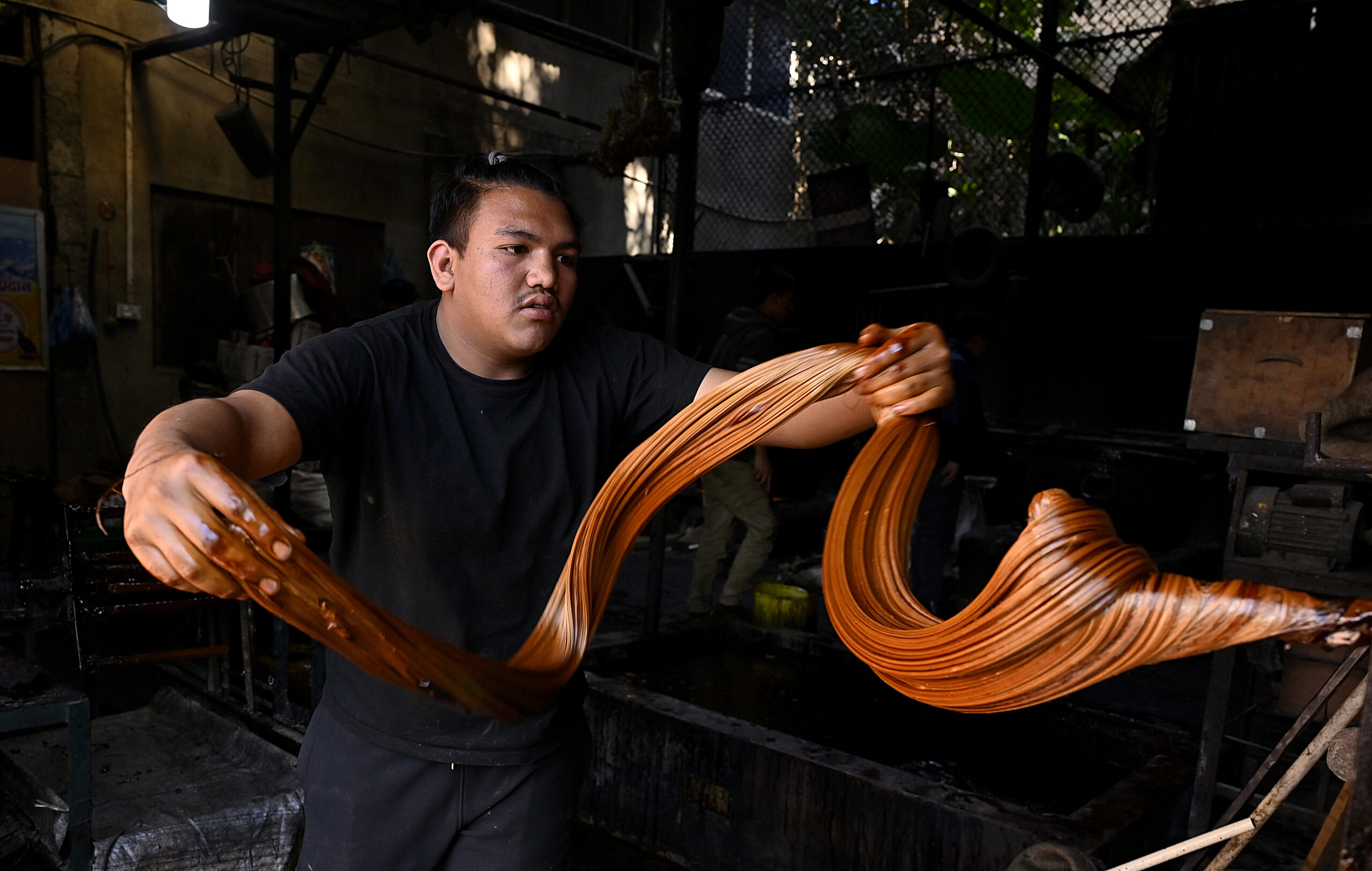
Kathmandu: Tokha, long known for its iconic (chaku), is once again filled with the sweet, smoky aroma of this traditional winter delicacy. As major festivals approach, local entrepreneurs are racing against time to keep up with soaring demand.
Every morning from 4 a.m. until late at night, the small industries of Tokha Municipality’s Ward No. 2 and 3 stay busy. “We start production early in the morning. Last year, we sold around 70,000 kilos of chaku,” shared businessman Buddha Shrestha. “This year, meeting the demand has become a bit difficult. Yomari Punhi arrived earlier than expected, and that always drives up chaku sales.”
Tokha, historically known as a sugarcane-growing region its Newari name deriving from “Tu” (sugarcane) and “Khya” (place of growth) has been producing chaku for generations. What began as a traditional craft has now grown into a nationwide supply chain. Today, chaku made in Tokha is sold not only across Kathmandu Valley in Asan, Indrachowk, Bhaktapur, Patan, and Kirtipur but also in major cities such as Pokhara, Butwal, Narayanghat, and Biratnagar. Remarkably, Tokha’s production fulfills more than 60 percent of Nepal’s chaku demand.
Chaku holds a special place in Newari culture. It is a staple during Yomari Punhi, Kajaria, and especially on Maghe Sankranti, when families also enjoy sugarcane, yam, and other seasonal foods. Believed to strengthen the body, boost immunity, and provide warmth, chaku is commonly given to children and the elderly during the cold winter months.
As winter deepens and festivals draw nearer, Tokha’s age-old tradition continues to thrive sweetening Nepali households just as it has for generations.
